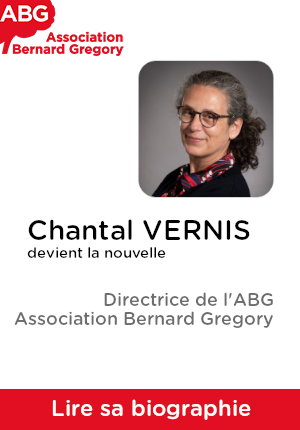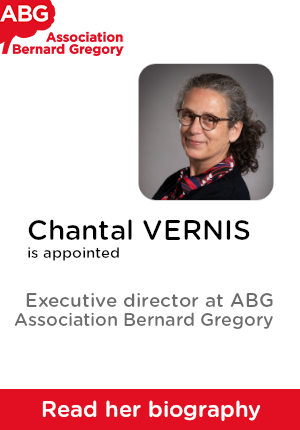Medical writing according to Elodie PAUWELS, PhD in genetics
Medical writer is a communication profession, accessible to people with a solid scientific background. It is therefore a "natural" option for PhDs interested in a career far from the bench, but not so far from research.
Met during a Career Afterwork, organized by the MAASCC (the career development center for scientists at Pasteur Institute), Elodie Pauwels, PhD in genetics, agreed to answer our questions. With her 5 years experience as medical writer, she shares with us her background, her experience and sheds light on this profession in this ABG interview.

Transition from research to medical writing
PrEsentation
My name is Elodie Pauwels and I am a medical/scientific writer at 4Clinics. After completing a technical degree in biochemistry at the ENCPB and the Magistère de Génétique de l’Université Paris VII, I completed my doctorate in the United States where I defended my thesis in December 2012, and came back to France shortly afterwards.
I now have 5 years of experience as a medical/scientific writer in CRO (contract research organization): my job consists in writing or controling the quality of medical-scientific documents mainly for the pharmaceutical or biotechnological industry.
I may have to translate or review the translation of these documents.
For example, I am in charge of writing clinical study reports, which are then submitted to the health authorities. For this, I am in direct contact with:
- the customer;
- the project manager of the program and/or clinical study;
- sometimes data managers;
- biostatisticians, who provide the results of the clinical study as tables, figures and listings.
What I like about writing such reports is the overall perspective on the clinical study, having the first opportunity to describe and exploit its results. I also like the opportunity to move from one subject to another, from one therapeutic area to another; I am constantly learning.
What I like least about my job is perhaps the rigidity of regulatory documents - there is no room for creativity, and sometimes you need to have a sharp eye to detect the slightest detail or inconsistency in substance and form, and a certain administrative burden because the review of any document must be documented.
What does research experience bring to your responsibilities?
In order to be a good medical/scientific writer, it is first of all essential to enjoy writing, writing and communicating in English, and to be very rigorous: customers' expectations can be quite high (for example, on the wording of sentences, and the rules for using capital letters, spaces, commas or abbreviations).
The experience of academic research has helped me because during the years spent in the laboratory, researchers develop several skills:
- learning through reading;
- seeking information on subjects that may differ from their field of interest;
- exploiting results including statistics;
- communicating in writing and orally, in English ;
- and working independently as well as in a team.
TRANSITION FROM RESEARCH TO MEDICAL/SCIENTIFIC WRITING
The main reason why I left academic research is the desire to have a stable job; I saw researchers around me doing a series of post-docs and short contracts... Having two days off per week (on weekends!) is not negligible either.
Finding my first position as a medical writer was not easy. Right after defending the thesis, I had no idea that this profession existed. When I returned to France, I contacted former professors and colleagues so as to study the possibilities in the field of science communication, since I didn't want to get too far away from science. I have been on specialized job boards, such as ABG or Leem. After identifying the profession of medical/scientific writer, I contacted former Magistère alumni in this type of position to get a better idea of their profession and how the transition to it had gone.
I had my CV posted on the ABG website, and I was checking the ads daily. That's how I went back to the research laboratory for a few months. I had also registered with APEC, to no avail, since the process took so much time.
RECRUITMENT PROCESS
In the medical writer's job ads I applied for in 2013, having a doctorate was not necessarily a prerequisite, but most definitely an asset. At the beginning of my job hunt, a former colleague working in the pharmaceutical industry reviewed my CV and gave me advice on how to improve it. I did not specifically ask for help to prepare for the interviews; each interview was a training ground for the next one.
Although I lacked experience as a writer, my efforts eventually came to fruition after several months. The most curious thing is that it was one of the applications that took me the least time, via LinkedIn. I don't remember writing a cover letter for this position. What made the difference?
- having lived for several years in an English-speaking country;
- having written my thesis in English;
- my immediate availability.
I started my first job as a writer the day after the only job interview I had for this position!
I never felt any pressure on this during the interviews. The profiles of researchers who have spent years specializing on a topic, and of physicians/pharmacists are different, or rather complementary. Even if the job add states that it is preferable to be a physician/pharmacist, this should not prevent a PhD from applying: preferable does not imply mandatory.
Mobility
What were your motivations for going abroad?
Several factors acted as motivation, and it is quite difficult to classify them. There was, of course, the unique opportunity that was presented to me, but also my taste for travel and expatriation, and finally my desire to improve my level of professional (and everyday) English.
I was very fortunate in the process: my work visa was funded by the research centre that hosted me, and I received a salary there that allowed me to live properly.
The recruitment was very simple: at the end of my Master 2 internship in a research laboratory, I was part of those offered to cross the Atlantic ocean and help setting up a "twin" laboratory while pursuing the research work.
In addition to practicing English, this experience has allowed me to develop skills such as:
- adapting to a new environment;
- working in an international environment.
Real assets when you apply for a position in a company located in several countries, for a position requiring interaction with international clients, or for a position based in a locality you are discovering.
Step outside your comfort zone and do not hesitate to go abroad for a while if get the opportunity. It's good to question yourself before you act, but don't be too reluctant. Life as an expatriate is so rewarding: take the leap and immerse yourself in another culture! It will open your mind, change the way you see and understand things, expand your network, and of course offer you a wonderful experience.
Advice
- Before starting to apply, it is necessary to plan ahead. Unlike the life of a researcher, the writing profession is much more sedentary: you have to expect to spend some if not all of your working hours in front of a computer.
- Explore the activity sector that interests you, particularly through networking. It should also be noted that scientific writing is the main skill of several professions (scientific writing [articles, reviews, posters...], regulatory writing [protocols, clinical study reports...]) that do not necessarily operate in the same type of companies. If you feel seduced by regulatory writing, you need to be aware that you will often have to work on, or even produce, lengthy documents (sometimes reaching several thousand pages long).
- Finally, don't be too demanding for a first position; it will allow you to get a first experience, as well as the ins and outs of the job. It will then be easier to find another position that will suit you better.
- Developing your network is a regular activity. Any professional meeting, collaboration, discussion can lead you to be put in contact with the person who may be your next employer.
- Participate in meetings organised by research centres with professionals outside academic research, even if the topic does not completely excite you: who knows, perhaps you had a mistaken idea of a profession, or what you learn there will open up other perspectives.
- Reach out to others and ask questions. Of course, professional social networks go hand in hand with "in real life" meetings: these tools make it possible to extend them, but also to initiate them and to maintain them.
I am not in charge of recruiting PhDs, however if I were to recruit for a position such as mine, I would obviously test the English level of the candidate: he/she needs to know how to introduce him/herself, present his background in a fluid way, and conduct a conversation.
Be aware that there are sometimes writing exercises during recruitment, which also aim to test the ability to analyze and synthesize.
I would also expect the candidate to investigate the position he/she's interested in. A way to show that could be by having read basic regulatory texts, or by asking technical questions.
Get ABG’s monthly newsletters including news, job offers, grants & fellowships and a selection of relevant events…
Discover our members
 Aérocentre, Pôle d'excellence régional
Aérocentre, Pôle d'excellence régional  TotalEnergies
TotalEnergies  MabDesign
MabDesign  ASNR - Autorité de sûreté nucléaire et de radioprotection - Siège
ASNR - Autorité de sûreté nucléaire et de radioprotection - Siège  ANRT
ANRT  ONERA - The French Aerospace Lab
ONERA - The French Aerospace Lab  Groupe AFNOR - Association française de normalisation
Groupe AFNOR - Association française de normalisation  MabDesign
MabDesign  CESI
CESI  Laboratoire National de Métrologie et d'Essais - LNE
Laboratoire National de Métrologie et d'Essais - LNE  ADEME
ADEME  Ifremer
Ifremer  Nokia Bell Labs France
Nokia Bell Labs France  SUEZ
SUEZ  Généthon
Généthon  PhDOOC
PhDOOC  CASDEN
CASDEN  Institut Sup'biotech de Paris
Institut Sup'biotech de Paris  Tecknowmetrix
Tecknowmetrix







